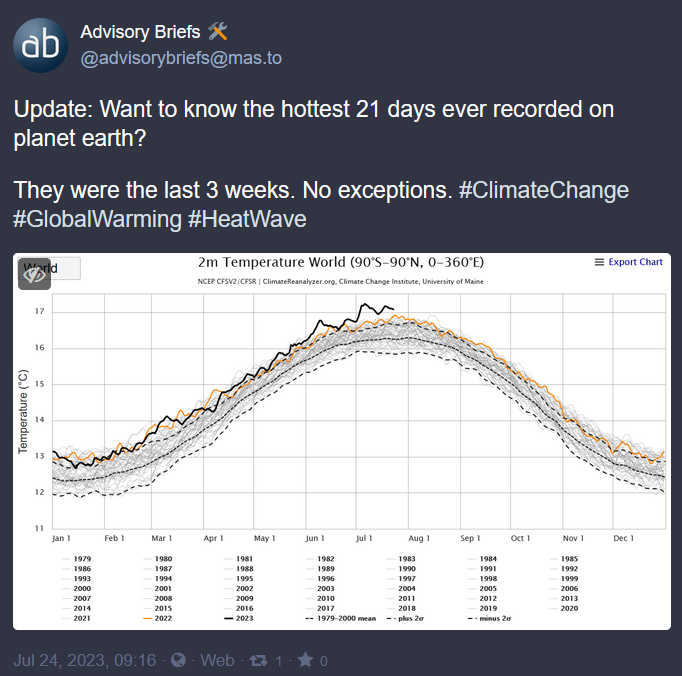World News
A community for discussing events around the World
Rules:
-
Rule 1: posts have the following requirements:
- Post news articles only
- Video links are NOT articles and will be removed.
- Title must match the article headline
- Not United States Internal News
- Recent (Past 30 Days)
- Screenshots/links to other social media sites (Twitter/X/Facebook/Youtube/reddit, etc.) are explicitly forbidden, as are link shorteners.
-
Rule 2: Do not copy the entire article into your post. The key points in 1-2 paragraphs is allowed (even encouraged!), but large segments of articles posted in the body will result in the post being removed. If you have to stop and think "Is this fair use?", it probably isn't. Archive links, especially the ones created on link submission, are absolutely allowed but those that avoid paywalls are not.
-
Rule 3: Opinions articles, or Articles based on misinformation/propaganda may be removed. Sources that have a Low or Very Low factual reporting rating or MBFC Credibility Rating may be removed.
-
Rule 4: Posts or comments that are homophobic, transphobic, racist, sexist, anti-religious, or ableist will be removed. “Ironic” prejudice is just prejudiced.
-
Posts and comments must abide by the lemmy.world terms of service UPDATED AS OF 10/19
-
Rule 5: Keep it civil. It's OK to say the subject of an article is behaving like a (pejorative, pejorative). It's NOT OK to say another USER is (pejorative). Strong language is fine, just not directed at other members. Engage in good-faith and with respect! This includes accusing another user of being a bot or paid actor. Trolling is uncivil and is grounds for removal and/or a community ban.
Similarly, if you see posts along these lines, do not engage. Report them, block them, and live a happier life than they do. We see too many slapfights that boil down to "Mom! He's bugging me!" and "I'm not touching you!" Going forward, slapfights will result in removed comments and temp bans to cool off.
-
Rule 6: Memes, spam, other low effort posting, reposts, misinformation, advocating violence, off-topic, trolling, offensive, regarding the moderators or meta in content may be removed at any time.
-
Rule 7: We didn't USED to need a rule about how many posts one could make in a day, then someone posted NINETEEN articles in a single day. Not comments, FULL ARTICLES. If you're posting more than say, 10 or so, consider going outside and touching grass. We reserve the right to limit over-posting so a single user does not dominate the front page.
We ask that the users report any comment or post that violate the rules, to use critical thinking when reading, posting or commenting. Users that post off-topic spam, advocate violence, have multiple comments or posts removed, weaponize reports or violate the code of conduct will be banned.
All posts and comments will be reviewed on a case-by-case basis. This means that some content that violates the rules may be allowed, while other content that does not violate the rules may be removed. The moderators retain the right to remove any content and ban users.
Lemmy World Partners
News !news@lemmy.world
Politics !politics@lemmy.world
World Politics !globalpolitics@lemmy.world
Recommendations
For Firefox users, there is media bias / propaganda / fact check plugin.
https://addons.mozilla.org/en-US/firefox/addon/media-bias-fact-check/
- Consider including the article’s mediabiasfactcheck.com/ link
view the rest of the comments

Well put. I think David Harvey explains this kind of thing in more depth in Rebel Cities. I'll explain his work not as a correction, as I agree with you, but to add to what you said as a different summary might help you people who haven't heard this before.
There's a chapter on the 'surplus capital absorption problem'. The successful capitalist ends every day with more money than they began with. What do they do with the extra, the surplus?
They can spend some, sure. But there are only so many things to buy. And if they don't invest, inflation will make them poorer and their competition will become more competitive, stealing their resources, labour, and customers. Part of the surplus, then, must be invested.
But what in? Everything is already owned by someone. So that leaves new industries, and the destruction of other things that already exist.
New industries implies that it's possible to keep building and building forever, leading always to use more and more scarce and harmful resources.
And destroying things only to re-build them isn't always very nice for the people who live in and use those things. Destructive wars, and consumer goods that break every three years and can't be replaced, are terrible for the environment.
But all this is the essence of capitalism. A system where commodities are produced for their exchange value, not their use value. This the 'commodity form'. It's the exchange of commodities for money that creates the opportunity to profit. It's this profit that allows the successful capitalist to end every day with more money than which they began. The problem of climate change cannot be solved within this capitalist logic.
The essence of Marxism, one might say, is the critique of the 'commodity form' and everything that flows from it. (This is what Marx works out in Capital, Volume I.)
The essence of socialism is the attempt to dissolve the commodity form, to produce things for their use value, not their exchange value. When society makes things on the basis of need and use, several things can happen: no more war; we can make consumer items that last and that can be repaired; we can build habitable, green homes for people to live in, not for property developers to speculate; etc, etc.
The essence of communism is the society that comes after socialists have fully taken us beyond the commodity.
Hence the argument: socialism or extinction.